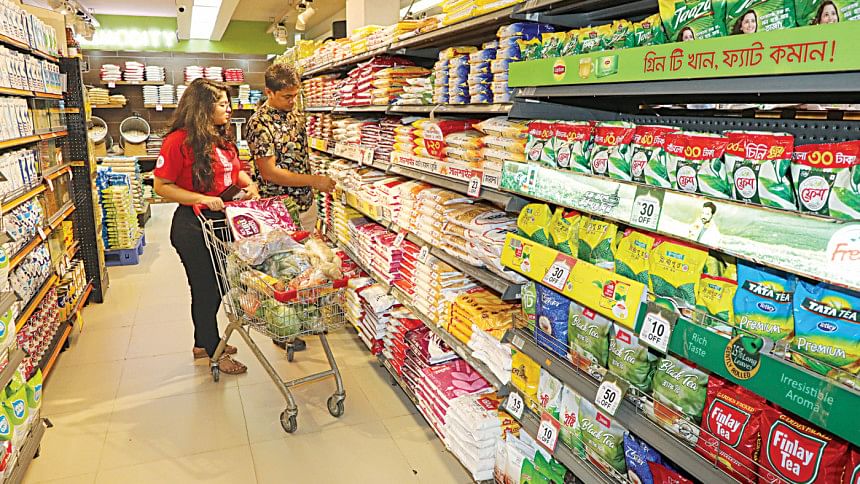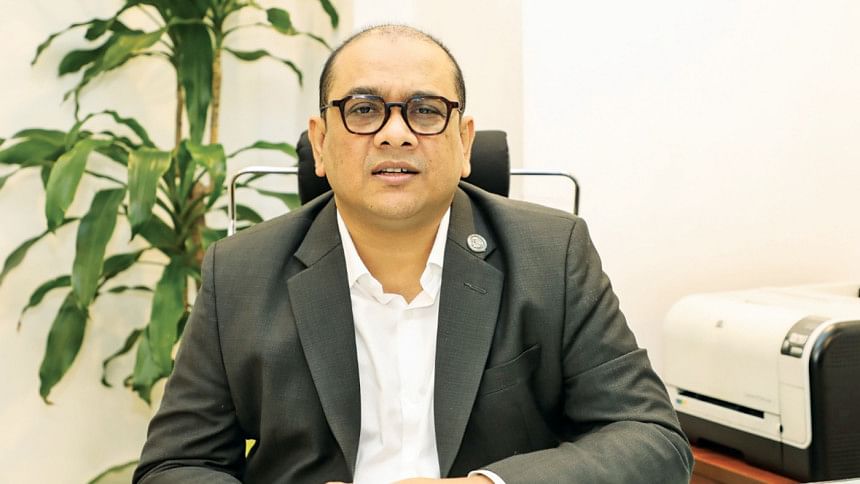Shwapno targets massive expansion

Shwapno, the largest retail chain in Bangladesh, plans to raise the number of its stores by 10 times to 3,000 in the next three to five years to meet the growing demand for comfortable shopping among urbanites and become a profitable entity by increasing sales volume.
The supermarket chain also hopes that more investors will join its franchise model.
Under the model, investors get 40 per cent of gross profit from the operation of stores. From the profit, investors clear rents, utility and other bills. After meeting all the expenses, investors enjoy 30-40 per cent return on their investments, turning the franchise model an attractive business for many.
"We are developing a different model. We already have more than 300 stores and these will behave like hubs and they can create spokes around them," said Sabbir Hasan Nasir, executive director of ACI Logistics Ltd, the operator of Shwapno, in an interview with The Daily Star.
He explained the reason for fixing such a big target.
"Our learning curve has changed. Our business model is more solidified and now we have to replicate."
"The core need of people is convenience and value that we have been able to offer to customers. The offers customers will get from our stores will not get elsewhere. As we buy in large quantities, we can have better deals," said Nasir.
He says the more Shwapno grows, the stronger relationship it will have with customers, which will allow it to unveil more offers.
"So, we believe in three to four years, Shwapno will reach break-even."
Shwapno posted an operating profit for the first time in the last financial year of 2021-22. It was more than Tk 6 crore, according to the latest annual report of ACI Ltd, which owns 76 per cent of ACI Logistics.
The retail chain's revenue grew 1 per cent year-on-year to Tk 1,388 crore in 2021-22.

Its losses stood at Tk 135 crore at the end of the financial year, an improvement from the Tk 142 crore it lost the previous year.
At present, Shwapno's earnings before interest, taxes, depreciation, and amortisation (EBITDA), a measure of core corporate profitability, is 1.5-2.5 per cent. It has been registering positive EBITDA for the last four years.
Its target is to elevate the EBITDA to 6-7 per cent on the back of increased sales volume.
The top official of ACI Logistics shares the optimism at a time when urbanites are showing a growing interest in supermarkets or modern retail for convenience and ease in buying items as opposed to visiting wet markets.
The size of Bangladesh's retail market is $18 billion and it is growing by 7.5 per cent annually.
On the other hand, the size of the overall supermarkets, including the branded segment is $400 million. It is growing by more than 12 per cent annually and taking market share of traditional retail.

Nasir said a niche market has already developed for upper-income groups. There is another group of shoppers who buy products for their regular needs.
"This market is very big and neighbourhood groceries are redesigning themselves following the supermarket models to attract customers. We see an impact of supermarkets here."
As the prospect for growth brightens, Shwapno looks to tap.
"Retail is not just about transactions; it is also about experience."
Currently, Shwapno is one of the top 10 brands across all categories and the number one superstore brand in Bangladesh as per Bangladesh Brand Forum, a think-tank.
Started in 2008, the retail chain serves more than 60,000 households each day by offering items ranging from daily essentials and groceries to apparel, home décor and electronics through its outlets in 58 districts. It enjoys over half of the market share in the supermarket segment.

"We have spent a lot of time creating this brand," said Nasir, who has been leading the retail chain for the last 10 years.
He said it was challenging in the initial years and the retail chain had to work a lot to create acceptability among customers.
"We had to focus on creating acceptability and making it powerful. We had to create new designs for the new stores so that our customers get an experience of comfortable and easy shopping."
Over the years, Shwapno has also established direct contacts with growers for contract farming to source farm produce, particularly vegetables. It has been part of global Good Agriculture Practice for the last four years.
Nasir said that modern retail would have grown at a faster pace had there been no discriminatory policy of the National Board of Revenue.
At present, customers have to pay a 5 per cent value-added tax while shopping from supermarkets. They don't have to count the same if they buy items from unorganised groceries.
Yet, customers come to supermarkets for other tangible and intangible benefits, according to Nasir.
"Consumers ultimately get more value by shopping with us. There are a number of intangible benefits. Our shops are hygienic."
However, there are still challenges when it comes to providing services to customers.
"Retail is a service-oriented industry and we need to train up all of the people involved in the trade. It would have been very helpful if there was an academy to create efficient human resources for the retail sector," Nasir said.

 For all latest news, follow The Daily Star's Google News channel.
For all latest news, follow The Daily Star's Google News channel. 








Comments